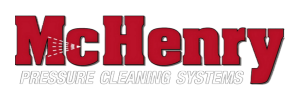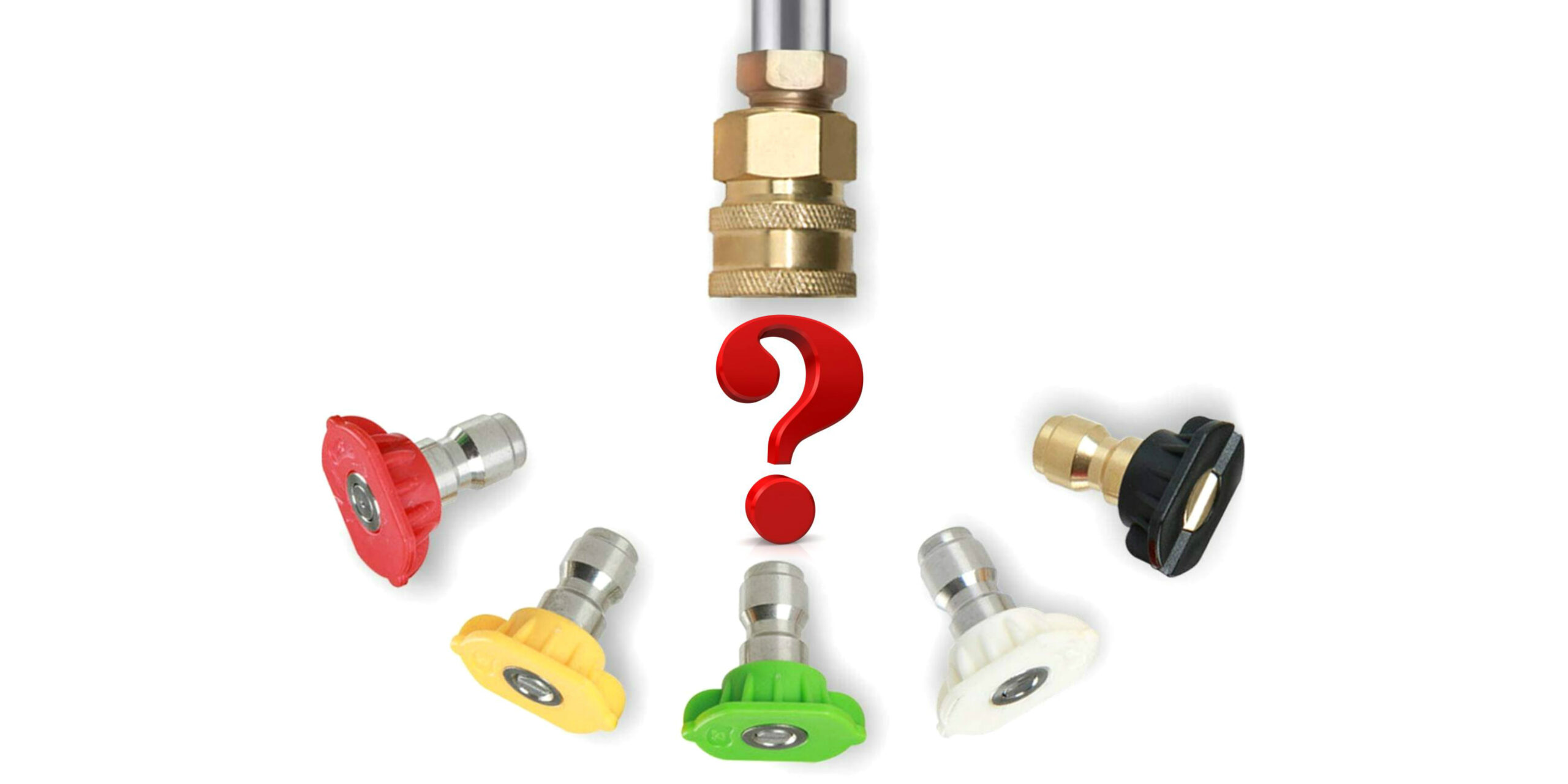How can you clean faster and more efficiently with your pressure washer without causing damage? By choosing the right pressure washer nozzle! Matching the pressure washer nozzle to the pressure and flow of your unit—and to the task at hand—is the key to success.
The correct spray tip can reduce the time and effort involved in cleaning with a pressure washer. Let’s take a moment to learn more about the different types of pressure washer nozzles and factors associated with their efficiency and your productivity.
Spray Pattern
Choosing the wrong nozzle for your project can cause damage to the surface of a deck or to the paint on your home. Some nozzles can even cut the skin if you accidentally spray yourself or someone nearby.
Most pressure washers come with an array of spray tips to use for your projects, so you have several spray patterns and strengths to choose from. The strongest is typically used for commercial cleaning, while the mildest works well for applying detergent to a surface.
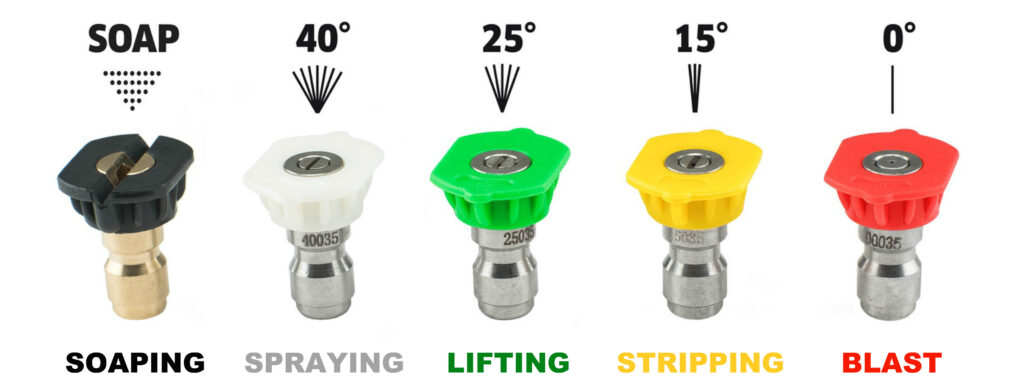
The strongest is the zero-degree nozzle, which has incredible force that shoots the water directly onto the surface. The jet of water is so strong that it is rarely recommended for home use. For commercial use, it would be used for tough stains and sticky substances like tar and sap on hard surfaces only. Concrete and metal could handle the force, but wood and paint can become damaged with the strong stream of a zero-degree nozzle.
The next strongest nozzles are 15-degree tips, which are great for cleaning most surfaces of mildew, algae, and other stains. It provides a strong spray of water, but not so strong that it will damage wood. Test the spray of your pressure washer from several feet away to be sure you won’t damage the surface.
Nozzles of 25 degrees or higher offer an angle that mildly sweeps surfaces free of dirt, mud, and soap. The gentle power works well around the house and garage. A good approach for home pressure washing is to start with the highest angle first, then go down in angle if your test surface doesn’t come clean.
The gentlest of pressure washing nozzles are the detergent nozzles. Many pressure washers come with a basic detergent nozzle. This makes soap application easy on most surfaces.
Specialty Pressure Washer Nozzles
Some pressure washer nozzles have been designed for specialized applications and can be purchased separately. For commercial cleaning, a rotating zero-degree nozzle can help cut your cleaning time in half. It provides a rotating spray of water that cleans at 5000 to 9000 rpms. Plus, this turbo spray expands to a 15-degree pattern, which can double your productivity.
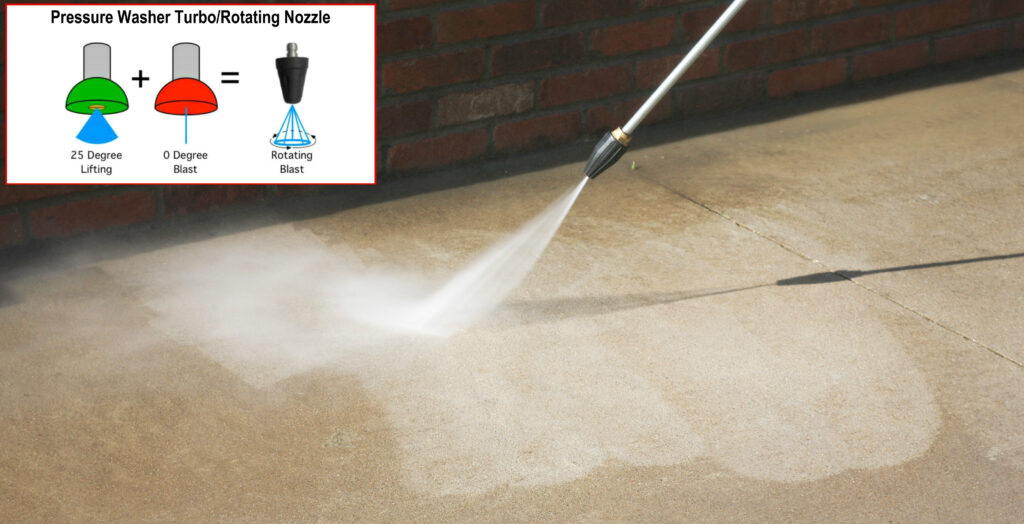
Another time-saving solution for cleaning large buildings or homes is the long-range detergent nozzle. This useful accessory allows you to apply soap to a surface up to 30 feet away.
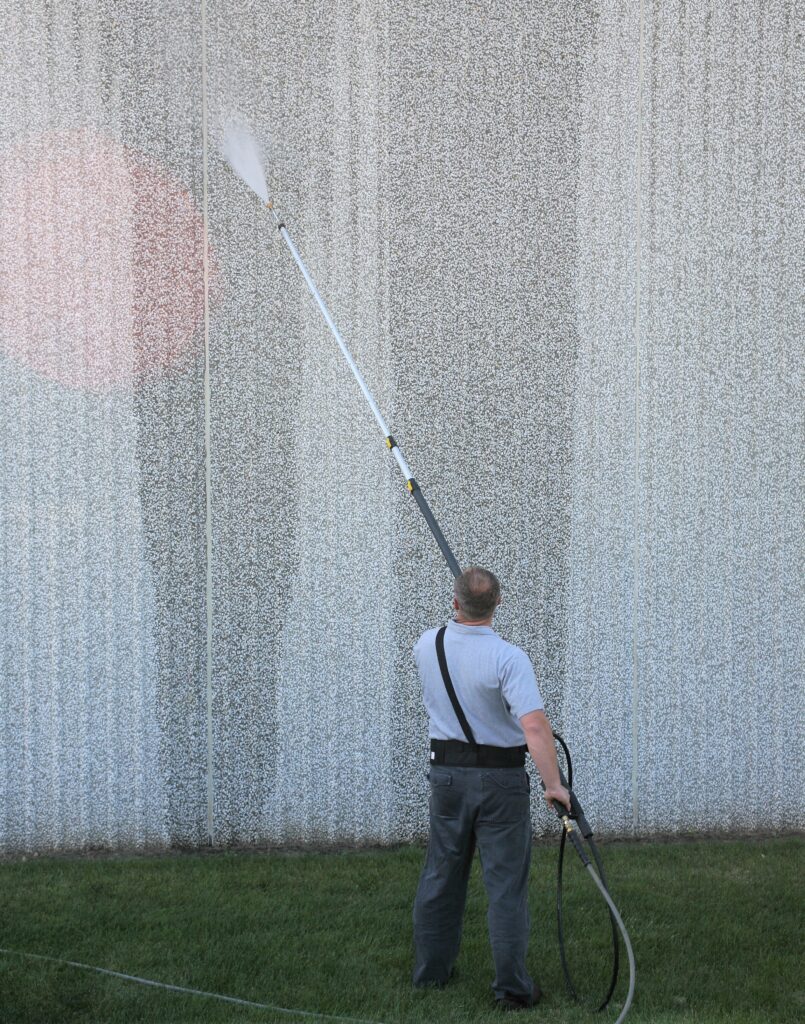
Nozzle Wear and Productivity
Remember that pressure washer nozzles wear out over time. If you notice a decrease in cleaning power and productivity, you will want to consider the age and wear of your nozzles.
You will likely use one nozzle more than the others. Keep track of that and consider purchasing a new nozzle when it seems like your cleaning productivity has been reduced.
Tips for Choosing a Cleaning Nozzle
- Start with a wide-angle nozzle and work up to zero degrees for the toughest stains on hard surfaces.
- Test on a small area, and don’t get too close at first.
- Pressure wash surfaces with safety and common sense in mind.
Still not sure which nozzle you need?
Here are some great options to help you understand a little more about each nozzle type & their purpose! Be sure to view our helpful Chart of Nozzle Types.
Contact McHenry Pressure Cleaning Systems in Frederick with any questions you have about pressure washer nozzle selection.
Need a replacement nozzle? Contact us to order!
